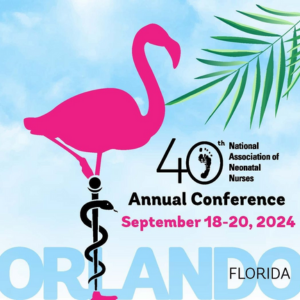Back
Paper Session
Implementation of High-Fidelity Simulation (HFS) Mock Code program in a Level III Neonatal Intensive Care Unit (NICU) (PS1d)
Wednesday, September 18, 2024
3:15 PM – 3:30 PM EST
Location: Orange D
Earn 0.25 Contact Hour(s)
RNC-NIC: 4
NNP-BC: 5
RNC-LRN: 5
C-ONQS: 28
NNP-BC: 5
RNC-LRN: 5
C-ONQS: 28
High-risk low volume cardiopulmonary events pose a risk for low confidence in staff resuscitative skills due to lack of experience. Mock code training may be an effective tool to fill the gap in experience (Hazwani et al., 2020).
How research evidence obtained and evaluated:
The last five years of literature related to mock code programming was used to guide the development of the mock code program.
Steps taken to implement:
Using current literature, an interprofessional mock code committee was assembled, and a mock code leader team was identified and trained in mock code management. Prior to and after the mock code event, participating staff completed the Grundy confidence scale (Grundy, 1993) to gauge participant confidence. The NRP checklist was used to gauge skill performance. Post mock debriefing sessions discussed the mock code event. Attendance was monitored so all staff could participate.
Barriers to implementation:
Barriers to implementation are the training time for leaders, and staff time away from patient care to attend the mock code event.
Analysis of nursing and patient outcomes:
The assumption is that confidence levels, according to Grandy’s C-scale will increase between pre and post evaluations. Mock code practice will increase resuscitative skill confidence levels and ultimately enhance patient outcomes (Vadla et al., 2020).
Recommendations for next steps to practice/education/research:
Next steps include monitoring of mock code participant performance, making needed changes to the program, adding program to new employee orientation and sharing program performance with organizational leadership and staff.
Needs Assessment and Presentation Description: Implementation of a mock code program increases skill levels, confidence, and team work skills. NRP skills are lost within 2-6 weeks following re-certification. Due to this frequent high fidelity mock codes will keep these skills fresh.
How research evidence obtained and evaluated:
The last five years of literature related to mock code programming was used to guide the development of the mock code program.
Steps taken to implement:
Using current literature, an interprofessional mock code committee was assembled, and a mock code leader team was identified and trained in mock code management. Prior to and after the mock code event, participating staff completed the Grundy confidence scale (Grundy, 1993) to gauge participant confidence. The NRP checklist was used to gauge skill performance. Post mock debriefing sessions discussed the mock code event. Attendance was monitored so all staff could participate.
Barriers to implementation:
Barriers to implementation are the training time for leaders, and staff time away from patient care to attend the mock code event.
Analysis of nursing and patient outcomes:
The assumption is that confidence levels, according to Grandy’s C-scale will increase between pre and post evaluations. Mock code practice will increase resuscitative skill confidence levels and ultimately enhance patient outcomes (Vadla et al., 2020).
Recommendations for next steps to practice/education/research:
Next steps include monitoring of mock code participant performance, making needed changes to the program, adding program to new employee orientation and sharing program performance with organizational leadership and staff.
Needs Assessment and Presentation Description: Implementation of a mock code program increases skill levels, confidence, and team work skills. NRP skills are lost within 2-6 weeks following re-certification. Due to this frequent high fidelity mock codes will keep these skills fresh.
Learning Outcome(s):
At the conclusion of this presentation, the learner will be able to:
- Upon completion, participants will be able to identify the importance of implementing a High-Fidelity Simulation (HFS) mock code program
- Upon completion, participants will have the knowledge on how to identify the effectiveness of a High-Fidelity Simulation (HFS) Mock Code program
.jpeg.jpg)

Lynn Mohr, PhD, APRN, PCNS-BC, CPN, FCNS
Disclosure(s): No relevant disclosure to display
.jpg)
Leann Baker, DNP, APRN, NNP-BC
Assistant Professor of Pediatrics
University of LouisvilleDisclosure information not submitted.

